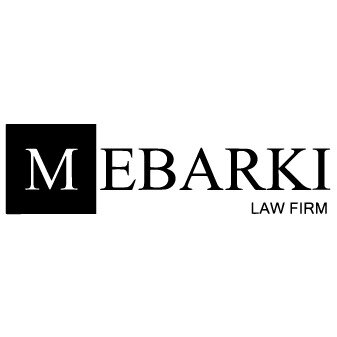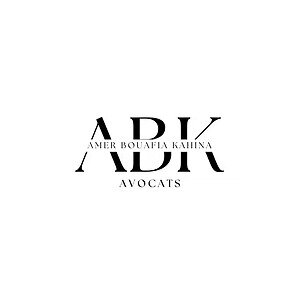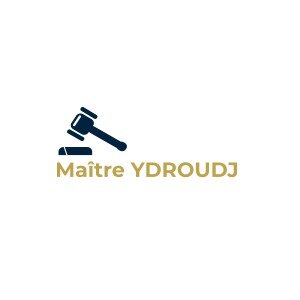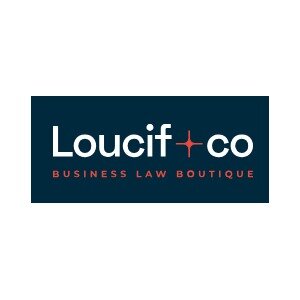Best Structured Finance Lawyers in Algeria
Share your needs with us, get contacted by law firms.
Free. Takes 2 min.
Or refine your search by selecting a city:
List of the best lawyers in Algeria
About Structured Finance Law in Algeria
Structured finance in Algeria refers to complex financial transactions designed to meet unique funding needs that cannot be met with standard financing options. It often involves pooling financial assets and creating securities that are sold to investors. Typical examples include asset-backed securities, securitization, and complex syndicated loans. In Algeria, the structured finance market remains relatively underdeveloped but is experiencing gradual growth, especially in sectors like infrastructure, energy, and real estate. The regulatory framework is evolving to accommodate these innovative financing mechanisms while ensuring alignment with international standards.
Why You May Need a Lawyer
Structured finance deals are inherently complex and involve multiple legal, regulatory, and financial considerations. You may need legal assistance in the following situations:
- Structuring new financing transactions, such as securitizations or project finance deals
- Ensuring compliance with Algerian banking, securities, and financial regulations
- Negotiating and drafting intricate financial documentation and contracts
- Conducting due diligence on asset pools or counterparties
- Navigating cross-border elements involving foreign parties or currencies
- Resolving disputes arising from structured finance transactions
- Obtaining regulatory or governmental approvals where required
Local Laws Overview
Structured finance in Algeria operates within a framework of national laws and regulatory bodies. The main features include:
- Banking Regulations: Oversight by the Bank of Algeria ensures the stability of financial institutions participating in structured deals.
- Securities Laws: The Financial Markets Commission regulates the issuance and trading of securities, including those backed by assets.
- Foreign Investment Laws: Foreign entities participating in Algerian deals are subject to specific ownership limits and partnership rules.
- Project Finance Legal Regime: Large infrastructure and industrial projects have their own set of rules, including government guarantees and risk allocation guidelines.
- Taxation: Tax treatments for structured products and transactions must be carefully assessed to ensure compliance and cost-efficiency.
- Islamic Finance: Algeria is gradually embracing Islamic finance products, which have unique legal and compliance requirements, particularly for asset-backed and Sharia-compliant transactions.
Frequently Asked Questions
What is structured finance, and how is it different from regular loans?
Structured finance involves creating customized financial solutions, often using assets as collateral and complex legal structures, to address specific funding needs. It differs from regular loans by its reliance on asset pools, securities, and innovative risk management techniques.
Is structured finance legal in Algeria?
Yes, structured finance activities are permitted in Algeria, provided they comply with national banking, financial, and securities laws, as well as any sector-specific regulations.
Can foreign investors participate in structured finance deals in Algeria?
Foreign investors can engage in structured finance transactions, but they must adhere to investment restrictions, partner with local entities, and secure required licenses from regulatory authorities.
What types of assets are commonly used in structured finance transactions in Algeria?
Asset types include future receivables (such as utility payments), infrastructure project revenues, real estate portfolios, and occasionally trade finance receivables.
Which governmental bodies regulate structured finance in Algeria?
Main regulators are the Bank of Algeria, the Financial Markets Commission, and, for project finance, the relevant line ministries. Tax authorities and investment agencies may also play a role.
Are there any Sharia-compliant structured finance solutions in Algeria?
Yes, there is a growing interest in Islamic finance, and the legal framework is developing to allow for structured products that comply with Sharia law principles.
What are the main risks in structured finance transactions in Algeria?
Risks include regulatory changes, currency risks, counterparty risks, asset performance risk, and challenges in enforcing contractual rights.
Do I need government approval for a structured finance transaction?
Some transactions, particularly those involving public assets, foreign currency, or large-scale infrastructure, require approval from sectoral ministries or the national investment agency.
How do taxes apply to structured finance transactions?
Transactions are subject to income tax, VAT, and other applicable levies. It is crucial to assess tax implications at the outset and structure deals accordingly to avoid unintended liabilities.
What should I look for in a structured finance lawyer in Algeria?
Seek a lawyer or law firm with expertise in finance, a deep knowledge of local regulatory frameworks, experience with similar transactions, and strong negotiation skills to protect your interests.
Additional Resources
For further information or assistance on structured finance in Algeria, consider reaching out to the following entities:
- Bank of Algeria - Central bank overseeing financial sector regulation.
- Financial Markets Commission - Supervises securities markets and financial instruments.
- Algerian Ministry of Finance - Provides guidance on financial sector policies and regulations.
- Algerian Investment Promotion Agency - Assists with foreign investment and major project finance.
- Local Bar Associations - Can help in identifying qualified legal practitioners in finance law.
- Professional organizations and chambers of commerce for investor guidance and networking.
Next Steps
If you think you may need legal assistance with a structured finance matter in Algeria, here is a simple guide to follow:
- Identify your specific needs and the type of transaction you are considering.
- Gather all available documentation related to your assets, proposed transaction, and counterparties.
- Make a shortlist of experienced structured finance lawyers or law firms operating in Algeria.
- Reach out to potential legal advisors and schedule consultations to discuss your situation.
- Ask about their prior experience with similar transactions, their proposed strategy, and estimated costs.
- Once you select a lawyer, work closely with them to ensure compliance, address risks, and finalize documentation.
- Keep clear records of all consultations, agreements, and regulatory interactions.
Seeking early legal advice can protect your investments and facilitate successful structured finance transactions in Algeria.
Lawzana helps you find the best lawyers and law firms in Algeria through a curated and pre-screened list of qualified legal professionals. Our platform offers rankings and detailed profiles of attorneys and law firms, allowing you to compare based on practice areas, including Structured Finance, experience, and client feedback.
Each profile includes a description of the firm's areas of practice, client reviews, team members and partners, year of establishment, spoken languages, office locations, contact information, social media presence, and any published articles or resources. Most firms on our platform speak English and are experienced in both local and international legal matters.
Get a quote from top-rated law firms in Algeria — quickly, securely, and without unnecessary hassle.
Disclaimer:
The information provided on this page is for general informational purposes only and does not constitute legal advice. While we strive to ensure the accuracy and relevance of the content, legal information may change over time, and interpretations of the law can vary. You should always consult with a qualified legal professional for advice specific to your situation.
We disclaim all liability for actions taken or not taken based on the content of this page. If you believe any information is incorrect or outdated, please contact us, and we will review and update it where appropriate.
Browse structured finance law firms by city in Algeria
Refine your search by selecting a city.












